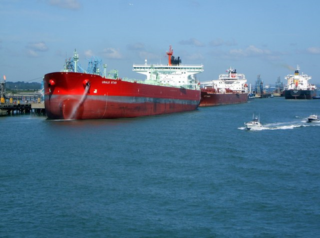-
Hydrogen for maritime transport being developed across Europe, often in hybrids or fuel derivatives
Date posted:
-
-
-
Post Author
Patrick LaveryCombustion Industry News Editor
-

Reuters has reported on an interesting range of initiatives involving hydrogen as a heavy transport fuel. The maritime industry has an emissions goal set through the United Nations, but national and sub-national jurisdictions across the world also have their own targets; the first net-zero emissions ships should be in operation by 2030 to meet the UN goal. As hydrogen is a relatively light fuel, H2-powered ships require more fuel storage volume (if not significantly pressurised) than traditional hydrocarbon-based fuels such as diesel, and for this reason short-range vessels are likely to be the first to be commercialised – Swiss technology developer ABB, for instance, “sees short-distance shipping as the first adopters of fuel cell technology”. Another complication is cost, with green hydrogen currently being 4-8 times as expensive as very low sulphur fuel oil, while global infrastructure must also be built to support hydrogen, something that took around 20 years for the LNG trade. Hybrid-fuel ships are an option for the transition period, with a spokesman for Norwegian ship designer and ship yard Ulstein saying that rather “than wait for hydrogen bunker infrastructure to be matured, we went for a hybrid design using a containerised solution for the hydrogen storage tanks.” (Commercial craft operating in Norway’s fjords must be emissions-free by 2026.) For global shipping, work is ongoing to make secondary fuels using hydrogen as a feedstock, for instance ammonia, methanol or ethanol, with 19 of 21 projects mapped by the Global Maritime Forum using hydrogen in some form, only seven of them being pure hydrogen. Overall, it seems advances in shipping will be closely tied with advances in the power generation industry.
